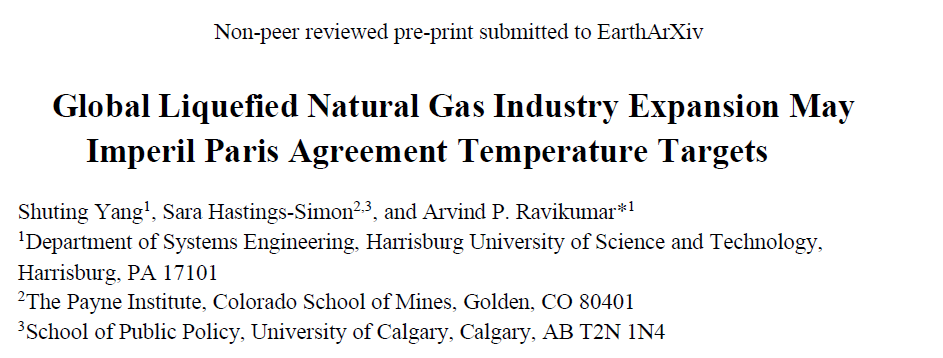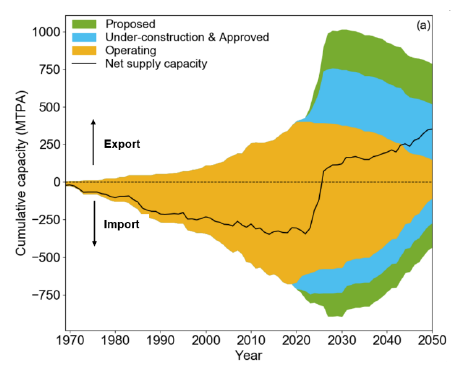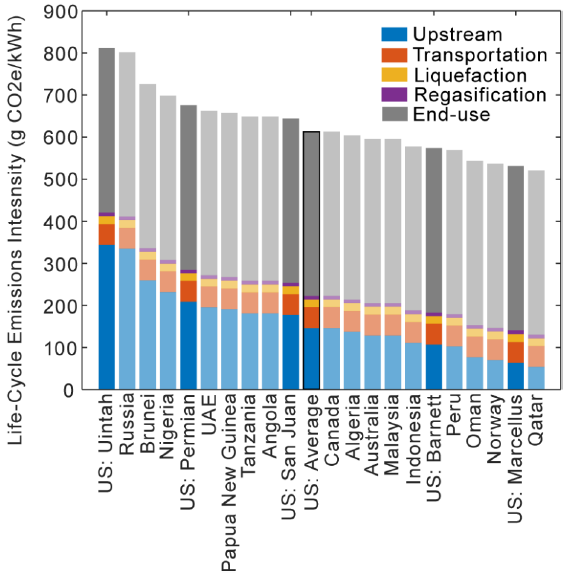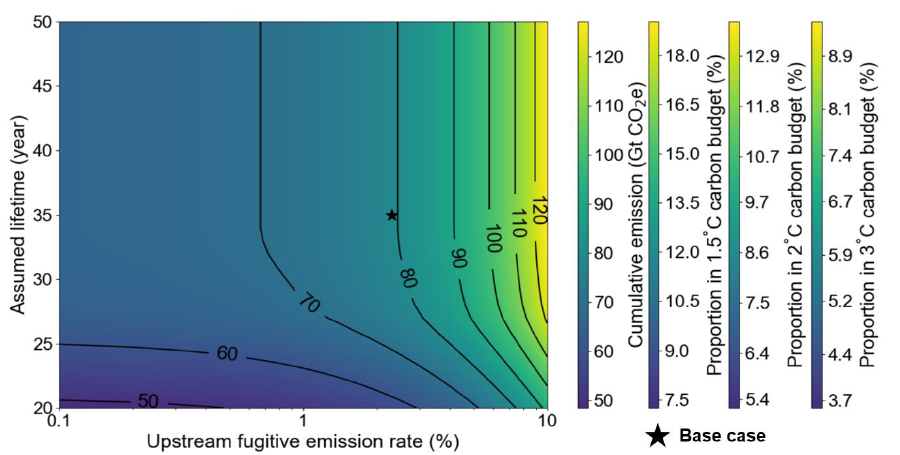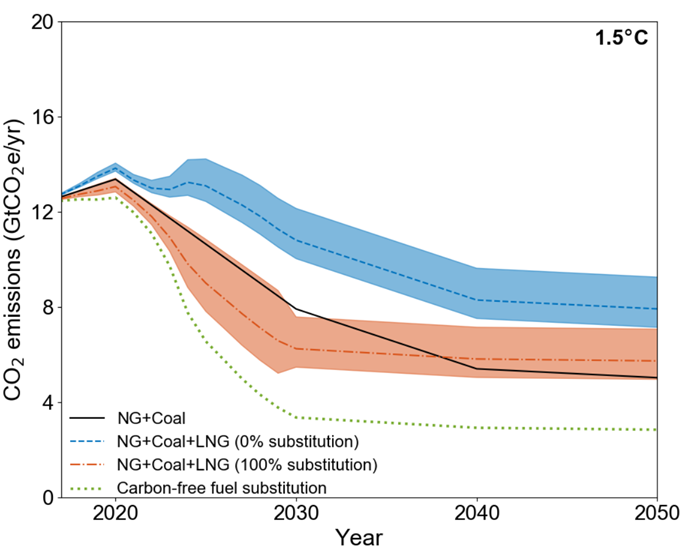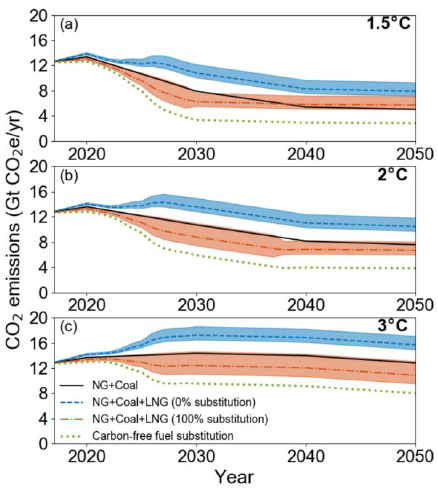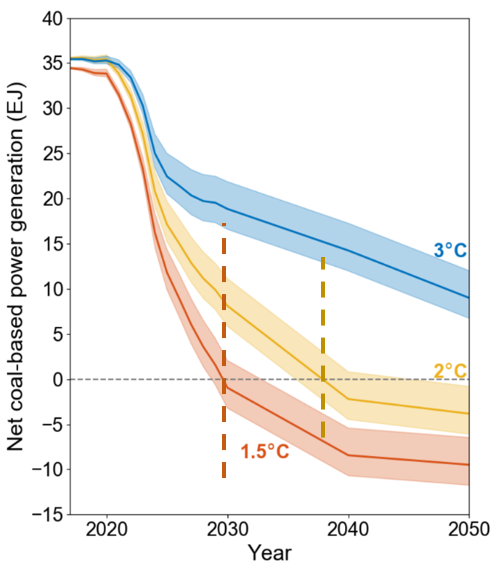 New Pre-Print Alert
New Pre-Print Alert Lydia Yang, @S_HastingsSimon, and I explore a critical question:
Lydia Yang, @S_HastingsSimon, and I explore a critical question:Is LNG really a bridge-fuel to a low-carbon future?
Near-term (pre-2030): Yes, with low leakage.
Long-term (2040+): No, esp. under Paris targets.
A short thread. 1/
https://doi.org/10.31223/X55P5R
What's the current situation?
Most LNG facilities haven't been built yet, and will still be around in 2050 (see fig). Export capacity will increase nearly 3x by 2030. That's a LOT of natural gas.
Current plans show import capacity will exceed export capacity by mid-2020s. 2/
Most LNG facilities haven't been built yet, and will still be around in 2050 (see fig). Export capacity will increase nearly 3x by 2030. That's a LOT of natural gas.
Current plans show import capacity will exceed export capacity by mid-2020s. 2/
Two critical variables that affect emissions intensity of LNG-based gas.
1) Methane Leakage
2) Infrastructure Lifetime
It *really* matters where your natural gas is sourced from. LNG from Marcellus basin - low leakage
LNG from Permian basin - high leakage 3/
1) Methane Leakage
2) Infrastructure Lifetime
It *really* matters where your natural gas is sourced from. LNG from Marcellus basin - low leakage
LNG from Permian basin - high leakage 3/
We selected IPCC SSPs that led to three temp outcomes - 1.5°C, 2°C, and 3°C, & looked at how LNG will affect cumulative emissions through 2050.
Share of emissions NG in 1.5°C:
No LNG - 15%
With LNG - up to 33%
Puts huge downward pressure on emissions from coal/oil. 4/
Share of emissions NG in 1.5°C:
No LNG - 15%
With LNG - up to 33%
Puts huge downward pressure on emissions from coal/oil. 4/
We identify two coal-to-gas substitution regimes:
1) 'LNG-limited' world: Near-term in all scenarios, emissions redns limited by LNG availability. Emissions .
.
2) 'Coal-limited' world: Long-term in 1.5°/2°C scenarios, emissions redns limited by lack of coal. Emissions . 5/
. 5/
1) 'LNG-limited' world: Near-term in all scenarios, emissions redns limited by LNG availability. Emissions
 .
.2) 'Coal-limited' world: Long-term in 1.5°/2°C scenarios, emissions redns limited by lack of coal. Emissions
 . 5/
. 5/
Why does this happen?
Net emissions = coal-to-gas substitution ( )+additional LNG emissions (
)+additional LNG emissions ( ).
).
Net emissions will always be negative when you have a lot of coal to substitute for. This is what we see in 3°C scenarios, where coal use does not decline rapidly. 6/
Net emissions = coal-to-gas substitution (
 )+additional LNG emissions (
)+additional LNG emissions ( ).
).Net emissions will always be negative when you have a lot of coal to substitute for. This is what we see in 3°C scenarios, where coal use does not decline rapidly. 6/
This is what happens to coal power:
1.5°C world: Peak benefit from coal-to-gas achieved by 2030. LNG beyond 2030 negates some of the pre-2030 benefits (not a lot of coal).
2°C: same as 1.5°C but cut-off year is 2038.
3°C: Coal-to-gas reduces global emissions through 2050. 7/
1.5°C world: Peak benefit from coal-to-gas achieved by 2030. LNG beyond 2030 negates some of the pre-2030 benefits (not a lot of coal).
2°C: same as 1.5°C but cut-off year is 2038.
3°C: Coal-to-gas reduces global emissions through 2050. 7/
So, what did we find:
1) Near term: LNG expansion reduces global emissions for all temperature targets (assuming low methane leakage).
2) Long-term: LNG expansion is not compatible with Paris targets of 1.5°/2°C as there is not enough coal to substitute for. 8/
1) Near term: LNG expansion reduces global emissions for all temperature targets (assuming low methane leakage).
2) Long-term: LNG expansion is not compatible with Paris targets of 1.5°/2°C as there is not enough coal to substitute for. 8/
What does this mean?
1) LNG is helpful in the near-term.
2) One cannot be simultaneously serious about Paris targets and promote new long-term LNG infrastructure.
2) LNG could act as an insurance against a 3°C world, but the cost of insurance is the risk of stranded assets. 9/
1) LNG is helpful in the near-term.
2) One cannot be simultaneously serious about Paris targets and promote new long-term LNG infrastructure.
2) LNG could act as an insurance against a 3°C world, but the cost of insurance is the risk of stranded assets. 9/

 Read on Twitter
Read on Twitter